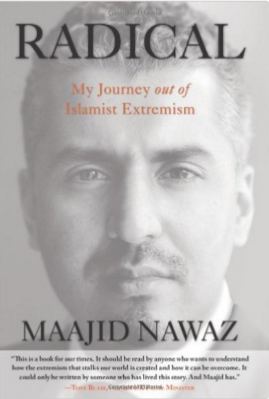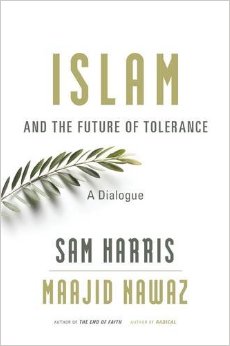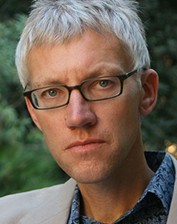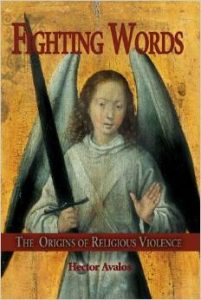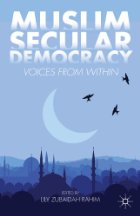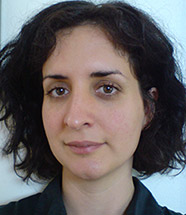A criticism of the view that Muhammad did not exist
Excerpts from an interview published in
Spiegel Online International
Dispute among Islam Scholars: Did Muhammad Ever Really Live?
SPIEGEL ONLINE: There is a group of prominent German Islamic scholars, who are becoming increasingly aggressive about questioning whether the existence of the Prophet is even historically accurate. The theory got its most recent backing from the University of Münster’s Professor Muhammad Sven Kalisch, who is in charge of training teachers for Islamic education at the secondary-school level. The Ministry of Education of the state of North Rhine-Westphalia is now planning to calm the waters by appointing an additional professor of Islamic pedagogy. Are we witnessing a split into two camps?
Marx: I don’t see it that way. But we should note that what we have from Kalisch at the moment are only the things he has allegedly said. From them, it sounds like he has decided to back the thesis of Professor Karl-Heinz Ohlig, which Ohlig publicized three years ago in his book “Dark Beginnings” (“Die dunklen Anfänge”). There, Ohlig posits that the Koran is a Christian text and that Muhammad probably never lived. But this group, which also includes the numismatist Volker Popp and some others, is very small. I’d say that their position isn’t really within the realm of accepted scholarship.
SPIEGEL ONLINE: Why?
Marx: There are far too many pieces of evidence that make Ohlig’s thesis that the Prophet never lived untenable. In the 14 centuries of polemics between Christians and Muslims, this issue has never made an appearance. Even in Syrian-Aramaic sources, however, there is some documentation about the prophet from an earlier time.
SPIEGEL ONLINE: Your scholarship focuses on the early period of Islam and the Koran. What is the evidentiary situation? How could we prove that the Prophet lived?
Marx: You have to be a bit delicate about it. In general, when it comes to history, you can’t point to any scientific proof. How would we, for example, prove the existence of Charlemagne? We can’t conduct any experiments; we have to work with evidence. And, for this issue, the evidentiary thread is the Koran. In this case, the evidentiary situation is better than it is for any other religion. We know of manuscripts of the Koran and Islamic inscriptions already 40-50 years after the Prophet died. It would be hard to explain the Koran, if you took the prophet out of the equation. Ohlig claims that Islam was actually a Christian sect up until the Umayyad Caliphate, that is, the eighth century. In this case, I run into this massive issue: It doesn’t match up with the text of the Koran. Why isn’t Christ a more central figure in the Koran, then? You hear about Abraham, Moses and Noah much more frequently.
. . . .
SPIEGEL ONLINE: In other words, if the Prophet did not live, in order to explain the literature, there must have been an enormous conspiracy.
Marx: Precisely. . . .
SPIEGEL ONLINE: Are you saying that Ohlig and his fellow combatants are either demagogues or pseudo-scholars?
Marx: It’s not for me to make that type of judgment. But that’s what it seems like to me. . . . .
SPIEGEL ONLINE: Muhammad Sven Kalisch operates in a sort of border region, that is, between science and theology. And, then, he’s supposed to be training religion teachers, too. The Coordination Council of Muslims in Germany (KRM) isn’t going to support him anymore because they believe that Kalisch is questioning fundamental elements of the Islamic faith. Is it conceivable that a person can be a Muslim and at the same time say that the Prophet might not have even ever lived?
Marx: That’s hard to imagine. . . .
. . . .
SPIEGEL ONLINE: Could we ever see the thesis — that the Prophet Muhammad might not have ever lived — brought up as a matter of discussion in an Islamic university?
Marx: I wouldn’t know where.
SPIEGEL ONLINE: As a researcher, how do you steer clear of this tense issue? You use what is a completely critical-historical approach. As long as your findings don’t contradict mainstream Muslim theology, it’s no problem. But what happens when it does?
Marx: Well, then it would probably be a problem. But we’re still a good way off from that situation. Don’t forget that what we’re doing here is basic research. The Koran deserves to be studied in a serious, scientific manner. I think it’s essential that we take these steps with Muslims. . . .
Interview conducted by Yassin Musharbash
In 2013 I read Tom Holland’s history of the rise of Islam, In the Shadow of the Sword, in which he argues in a most readable narrative that the astonishing spread of Arab conquests in the seventh century had more to do a series of tragic forces, in particular the Bubonic Plague, weakening the neighbouring Byzantine and Persian empires, than it did with the might of Arab arms. Moreover, those Arab conquests were not motivated by the Islamic faith; rather, the Islamic faith did not emerge until some decades after those conquests. I posted about Holland’s views at:
Since then I have been wanting to read more about the historical questions surrounding early Islam. Holland cited the works of several scholars I had hoped to engage with before I read Robert Spencer’s book Did Muhammad Exist? An Inquiry into Islam’s Obscure Origins, (But I distracted myself by reading another of Holland’s historical works instead.) Meanwhile Spencer’s book fell my way so I grabbed it.
Happily it turned out to be much more interesting as a historical exploration than I had expected. The most troubling flaw was Spencer’s rather poorly informed and stereotypical views of the nature of religions generally and Islam in particular as experienced in today’s world: he contrasts Christianity as an essentially peaceful religion ever since its origins with Islam as an essentially war-making and killing machine because of its historical origins. Some readers will love that summary and others will be dismayed by it (I am among the latter). Nonetheless, despite this botched conclusion much of the book is quite interesting and informative. How much of its information I will come to revise as I learn more I don’t know, so here I am writing up some general points that appear to be the views of a minority of Islamic scholars.
Anyone familiar with the arguments for and against the historicity of Jesus will recognize some of the terrain here. Evidence cited over the years for the historicity of Muhammad has included:
- the rich and vivid detail in the Islamic records of his life
- the documenting of negative (embarrassing) features of his biography
- the implausibility of anyone making up a character making such grandiose claims
- only the personal inspiration of such a person could explain why so many others were motivated to found a vast empire in his name
- how else can we explain the founding of a religion that went on to boast more than a billion adherents
Similar arguments have been made for the historicity of Jesus yet as we know not one of them truly withstands scrutiny.
But before I write more about the doubts raised about the traditional story of Islam’s origins I ought to make clear what scholars who dispute this minority view say about it.
Patricia Crone is professor of Islamic history at the Institute for Advanced Study, Princeton. She writes:
True, on Arabic coins and inscriptions, and in papyri and other documentary evidence in the language, Mohammed only appears in the 680s, some fifty years after his death (whatever its exact date). This is the ground on which some, notably Yehuda D Nevo and Judith Koren, have questioned his existence. But few would accept the implied premise that history has to be reconstructed on the sole basis of documentary evidence (i.e. information which has not been handed down from one generation to the next, but rather been inscribed on stone or metal or dug up from the ground and thus preserved in its original form). The evidence that a prophet was active among the Arabs in the early decades of the 7th century, on the eve of the Arab conquest of the middle east, must be said to be exceptionally good.
Everything else about Mohammed is more uncertain, but we can still say a fair amount with reasonable assurance. Most importantly, we can be reasonably sure that the Qur’an is a collection of utterances that he made in the belief that they had been revealed to him by God. The book may not preserve all the messages he claimed to have received, and he is not responsible for the arrangement in which we have them. They were collected after his death – how long after is controversial. But that he uttered all or most of them is difficult to doubt. Those who deny the existence of an Arabian prophet dispute it, of course, but it causes too many problems with later evidence, and indeed with the Qur’an itself, for the attempt to be persuasive.
For my own views on Crone’s argument about historicity see my post on historical method.
For further criticism see also, of course, the interview excerpts I have placed in the side-box.
I mentioned previously several other historians who have questioned the conventional story of Islam’s origins in my posts on Tom Holland’s book; here are a few of many more names listed by Spencer:
Ignaz Goldziher (1850-1921): Lateness of earliest biographical sources on Muhammad along with tendency to invent stories to support later political and religious positions made it impossible to treat the biographies as historically reliable. Spencer lists many names of scholars who have raised questions about Muhammad’s historicity but I list only a few here;
Henri Lammens (1862-1937): Questioned the traditional dates associated with Muhammad; noted the “artificial character and absence of critical sense” in the earliest biographies of Muhammad.
Joseph Schacht (1902-1969): Impossible to extract authentic core of historical material from the earliest texts. Many documents claiming to be early were in fact composed much later.
John Wansbrough (1928-2002): Doubted the historical value of early Islamic texts. Qur’an was developed for political purposes to establish Islam’s origins in Arabia and to give the Arabian empire a distinctive religion.
Patricia Crone and Michael Cook: Noted lateness and unreliability of most early Islamic sources; reviewed archaeological, philological sources, coins from seventh and eighth centuries. Posited that Islam arose within and then split from Judaism. Argued the Arabic setting (including Mecca) was at a late date and for political purposes read back into the history of Islam’s origins. Later, however, Crone wrote that the evidence for Muhammad’s existence is “exceptionally good” (see the quotation above).
Günter Lüling: Qur’an originated as a Christian document; reflects theology of non-Trinitarian Christianity that influenced Islam.
Christoph Luxenberg (pseudonym): Qur’an shows signs of a Christian substratum; Syriac, not Arabic, resolves many difficulties in the text.
So what are the main points that prompt questions about the historicity of Muhammad and suggest that Islam emerged as a major religion some decades after the Arab conquests? Robert Spencer lists the following: Continue reading “Did Muhammad Exist? A revisionist look at Islam’s Origins”
Like this:
Like Loading...

